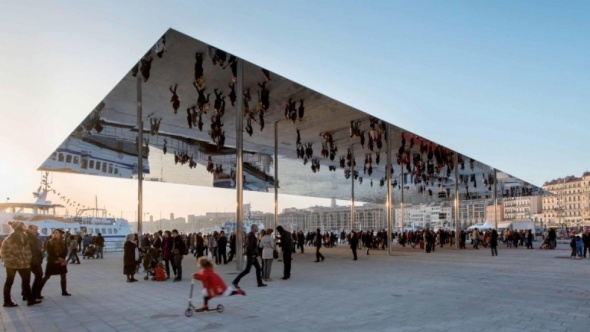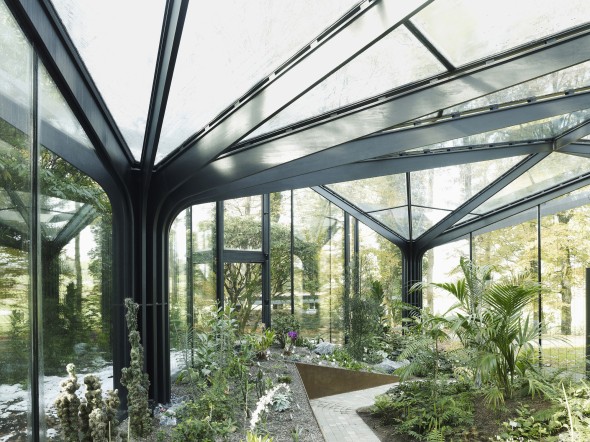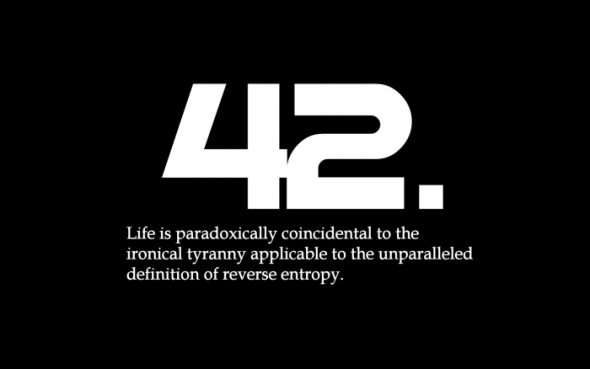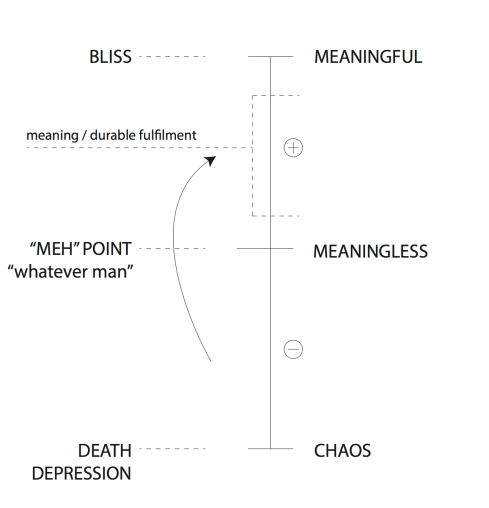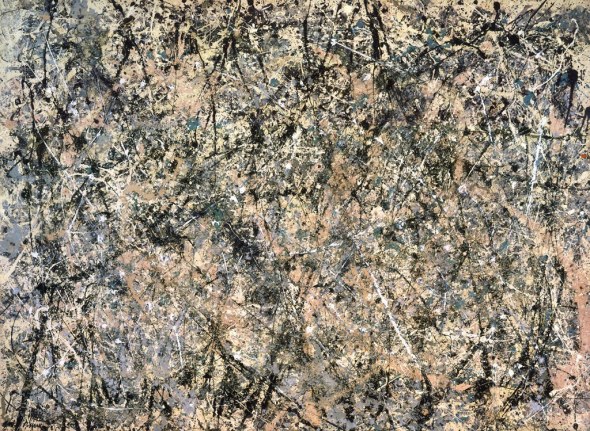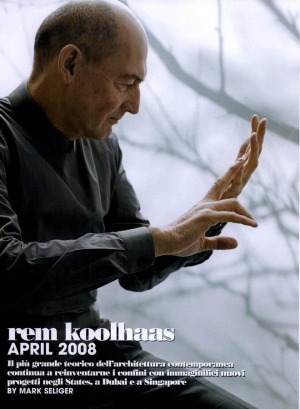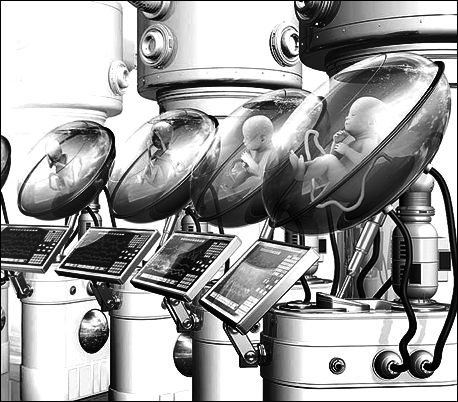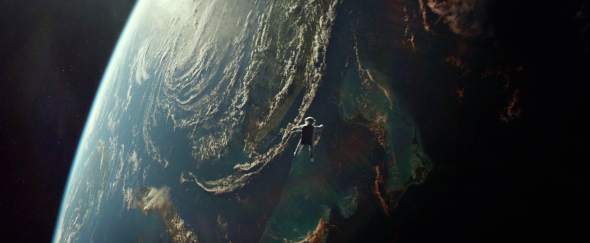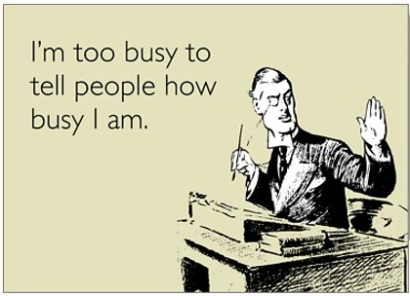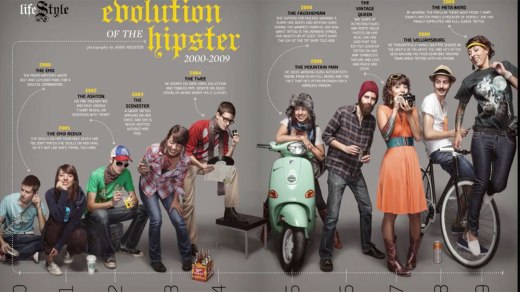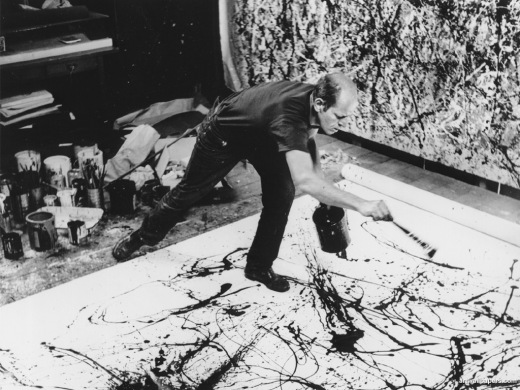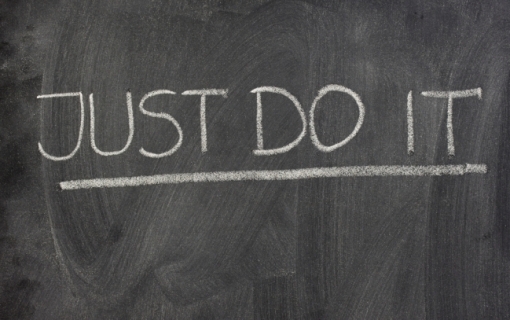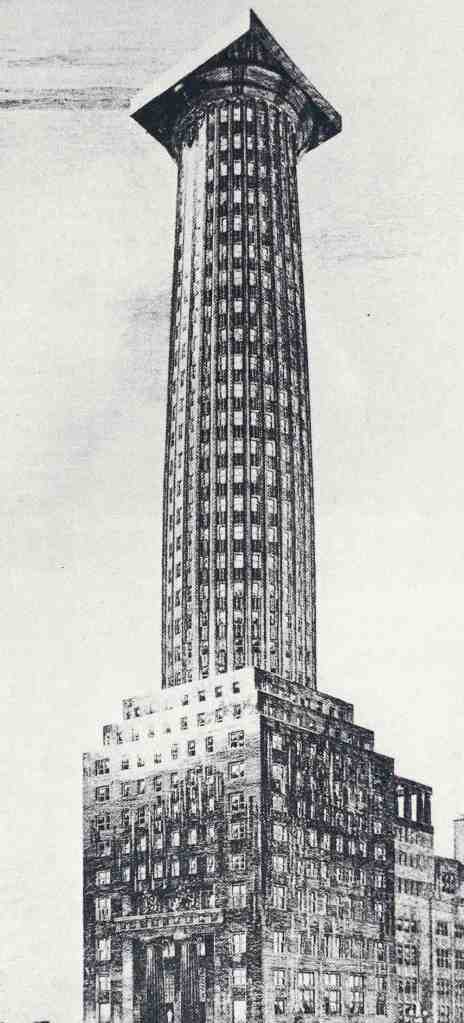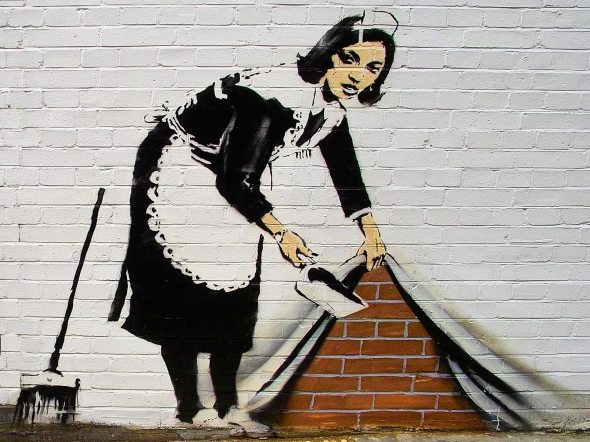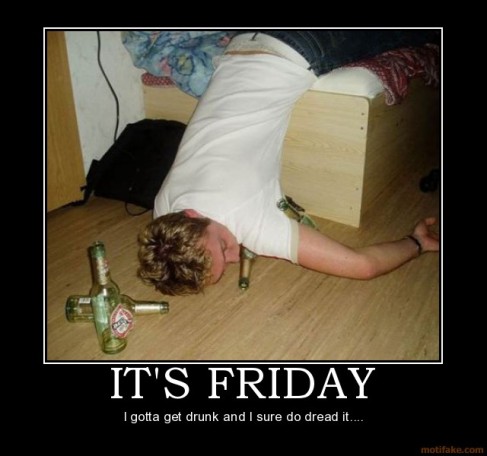aesthetics of scale, ornaments and time
Posted: September 3, 2015 Filed under: Uncategorized Leave a commentthe emerging trends
Posted: August 6, 2015 Filed under: Uncategorized Leave a commentI’ve been seeing different phenomenas lately, from professionals and friends. A friend of mine has written an article about the “crisis” of the 21st century, I don’t really see them as crisis but rather an incentive for change. I’d like to jot down some of it very quickly, it concerns the emerging trends lately and how rapidly things are changing. Without going into broken systems, let’s talk about them. AI and Robotics Computers have became rather competent at basic things. They have became not only tools but now have a basic reasoning capability. I have worked very closely with one of them for a year (“her” name is Kuka, by the way). During this time, we spent experimenting new technics but we have missed the blind spot: they can do consistent, repetitive, menial task precisely. Which, we all know, is not a human strength. With the current system tending towards more efficiency, these tasks will be executed by robots. Which, in my opinion, is not a bad thing in the long term. Humans will have to do the only one thing they’re very good at: invent or reinvent. With the upcoming of quantum computers and the obsolescence of sequential computers, the machine is pretty near the model that we, humans, are built on: simultaneous data processing. With that will emerge a very basic practical form of artificial intelligence. But we’re not there yet. 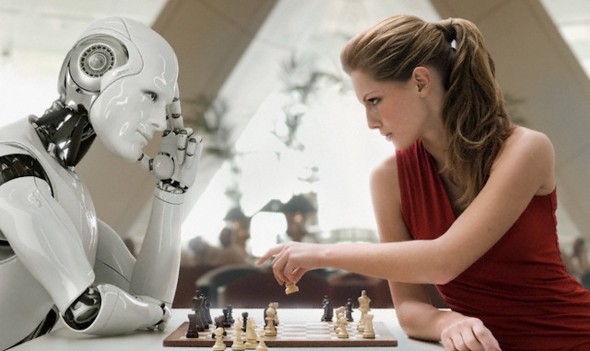
the robot seems amused by the woman’s seriousness due to her reaching her intellectual limits
Virtual Reality The last years of the first decade, we saw an emergence of something pretty cool: the smartphones and tablets and the like. Its pretty rare to see somebody not playing angry birds or any of that variant in the metro. It goes so far as to create memes about how absorbed people are with this thing. There is an exodus. But it is not a geographical exodus. It’s the digital exodus. Look at your surroundings. See a computer? yes. You’re in there. With the latest up coming technologies, namely the virtual reality, there has been a very big rave. People are really anticipating this. I have ordered one of these techs recently. There will be a stationary and a portable one. Soon, seeing the real world with your own eyes will be strange and people will start migrating in to the virtual realm. It is not surprising since the human nature is about control: the physical and real world is very hard to control. In the ever changing and adapting digital realm, people can absolutely control their environment. Some people will say: “but it’s not real”. Some others will say: “how do you define, real?” It is also interesting to see that this phenomenon is the same reason why we have created the arts and architecture in the first place: control (and we also like to be pleased by what we see). 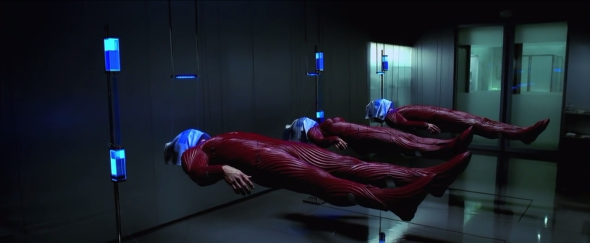
the guy who said “how do you define real?” is interestingly called Morpheus
Landscape “architecture” This trend is the reversing of the other two. With technology growing fast, things becoming irrelevant and our fucking up of the planet, some sensitive souls are going back to the beginning. I’ve asked the question of the urban landscape which ultimately lead to a theoretical (and it showed to be slightly controversial) project in Zurich.
With the image sharing of the internet, we are saturated by architecture design to the point that it becomes almost hilariously ridicule. Regardless of how hard architecture actually is, we have lost our marvel to the over-inflated egos, real estate investment and ridiculous media. The new generation is starting to disagree with all this development and some friction is created amongst the smartest. Architecture is desperately trying to “reinvent itself”, to no avail, because it is ultimately an art. The excitement of the artificial environment is temporary. The effort is too long. When we understand that all that is purely a trivial pursuit of the unimportant, the trend goes back to the “normal”, to the beginning. And the beginning is nature. The beginning is being human. The beginning is living in harmony with our landscape, shaping it and taking care of it. What is more human than simply being able to live on the planet amongst other lives? It is something that robots can not do. Nor virtual reality. Surpassing overwhelmingly the other trends, it is finally us going back to where it is the most precious: life. And we’ll finally be at peace with our universe. 
the absolutely marvellous NY Highline project. everything seems so right
Being three totally different phenomenas, it’s also interesting to see how they mix together. I am of course not saying that this is every single trends, as in some others are important, in medicine and energy and energy, but it serves as an idea catalogue and opens up discussions that are fantastic in the long run.
Cheers for now.
For reference.
My friend Pablo Garcia’s article:
relations and sub-rules of space
Posted: July 12, 2015 Filed under: Uncategorized Leave a commentSomeone said “People can inhabit anything. And they can be miserable in anything and ecstatic in anything. More and more I think that architecture has nothing to do with it. Of course, that’s both liberating and alarming”. It sounds a bit like a punch line but if we think about it, it’s not false. But it’s not entirely true either. Seeing it in the “nothing” absolute term is not right since the materiality has a sense on its own. I’d like to see how, I’d really like to see what really makes a place. But while we enjoy the superficial of things, how it looks, how it functions, things and especially space goes a bit further than that.
To prove this, let’s make a very simplistic experiment. I put you in the most beautiful space you can imagine. Awesome. Then let’s sprinkle something in there: a person and a task that you absolutely hate. How is the space now? Bad. Right. You can look at it from time to time for relief, but it will not have much influence. Space is just a beautiful container. Did I mention that you can’t escape from this space? We can go ahead and determine that space matter much less than what it contains.
one of the image from searching “beautiful space”. Indeed.
Rules of space
When we walk in a space, be it your home, your work or your friend’s house, there is a serie of rules that apply. We are compelled to act in a certain manner. Those who don’t act that way are considered weirdos. You know, guys who scream in metros and public transports, people walking too fast or too slow etc… The rule in my city’s public space is basically: walk fast, pretend you don’t know anybody and appear busy/important, don’t smile at strangers, look at your phone often. Very simplistic. Very basic. Most people obey. When there’s a absence of sub set of rules (consider a bar terrace), people behave by “default”, which, most of the time is pretty boring. Consider it the “politically correct”. And, of course, most of the time, legislative and financial rules apply. People brag about the materials or influence they own.
The inherent issue with these default rules is that people sometimes don’t know how to act. Since it is tacit and not written, hence, unclear and not defined, they are not easy to follow. So what do people do by default? Do the least weird stuffs possible. Appear as if you are a background. This is a problem. When rules are unclear, people don’t know how to act accordingly. Public spaces are cluttered by these tacit rules. I like to call them “frozen space politics”. People are frozen in a sort of appearance that is utterly uninteresting and unauthentic.
the one having fun is the kid. adults act boring.
Sub-rules of space
Talking about kids. If you happen to be in Lausanne, walk down the Navigation quay and you’ll see a wooden boat. On it, you’ll see a lot of kids playing. It seems like magic. They all seem in another world, preoccupied being pirates or something. It doesn’t seem to belong to this world. “Yeah, but they are kids”. Turn around.
You’ll see a group of older men/women talking and absorbed in a giant chess game. It’s a classic. And it’s also magic. This is where the general rule bends. The boring general rules of society, vaguely named success, attractiveness, power or what the fuck else, disappear. The space has bent itself in socially to create a bubble. It has broken the general rule and became, by itself, a sub-rule space. Like a castle within a giant flat sandbox.
If the immersion of the space is high enough (linked to the quantity of simultaneous stimulis), all the rest of the world litterally disappears. Think for a second about when you were in love for the first time as a teenager. Yes, nothing else existed outside of your love interest. That’s pretty much because the human brain has a limited processing power. Beyond a certain amount of datas (38 petaflops, which is huge, but overloadable) it shuts down the rest. That means that if the rules and the space is interesting enough to overload your brain, you literally forget all your problems. It’s the theory of flow. It’s quite poetic to think that we flow in space.
—
So the question remains: within all the rules, what sub-rules do we want to create in space? Call it sub-politics if you will, promoting control, elitism. or rather freedom and interaction. We have to be absolutely clear on our intention on this. Some people in the design world have chosen and I can safely say that they have chosen wrong. Do we follow them? Or do we create our own sub rules? What is more important? Matter? Life?
—
a sandbox. “look, I have built a big ass stadium”
Interaction in space
I have really appreciated my little experiment for the last few months with a sandbox. And I now love the metaphor of life as a sandbox. You are in one single space with other people. You make things (or buy things). You break things. But.. it is just sand at the end. What mattered most was the interactions you had throughout your life. The interaction with your creation, the interaction with people, the interaction with your creator. What mattered most is the stories that is told and remembered.
As designers, we emphasise on things. We “develop” and “build” and make “economical growth”. But walk into any design critic and you’ll encounter a very obscure way of seeing the world. Words such as “concept” “clarity” “modern” “strength” or some shit spring across. I have asked once “what is contemporary?” to be met with a silence. I’m supposedly very stupid.
Isn’t design’s main goal to promote life in the environment? Like, you know, life. And nature. And that stuffs. Not concrete, not “thickness of lines”. Isn’t life the center?
Our entire culture has been based on the ancient cultures. Which came to life within a space that promoted interactions and life. The agora and the stoa. What remains of the agora is irrelevant. It’s just stones now. But the heritage of what happened within those columns is much more than pretty tourist pictures. It’s stories. It’s ideas. It’s beliefs. It’s philosophy. And it’s ultimately society.
And those come from interaction between people. It comes from relationship and friendship. Like a friend of mine has said during our lunch the other day “you know, what makes a place lasting and real is the social bonds”. He is absolutely right.
a very beautiful place in Grüningen
Interaction with nature
We interact with our peers but we also interact with our environment. And most of the time, we interact with our peers in the environment. Walking in a forest or near a lake reminds us of how beautiful things are. But we have built cities and closed walls to shield ourselves from everything. Architecture, ironically, can kill life. It should be otherwise. Our built environment begins with a strong idea of how we want to interact with nature. How do we create a human habitat that is actually integrated in the natural ecosystem? It sounds a bit cliché. I really believe that our cutting off from nature is rendering us a bit insane.
—
I like to think about space as a giant sandbox in which we make things, we interact within ourselves and nature.
So ultimately we make space with materials, but there’s also a very important facets to sensible and sensitive space. I know a person who says “it’s not architecture if you can’t piss it in the snow”. Really? that’s it? No. Like, no way. That’s for selling projects to money hungry people with short attention span. Space is more than just a fucking diagram, it is subtle sub-rules and social and natural interaction. We might rename it environmental and social design. Rather than a very archaic “architecture”.
Etymology: Architect from Greek arkhitekton “master builder, director of works”.
There’s a bit more to it.
about existential questions // part2 // UNFINISHED //
Posted: October 14, 2014 Filed under: Uncategorized Leave a commentI chose to terminate this article here because there’s no point in writing further about this matter. Everyone has a personal view on this. I have solved mine. If you’re interested in talking about this, give me a call, we’ll talk about it.
—
So, we’ve seen in part1 that meaning is forced on to people by society. Success is a good example. Money another one. But it always kind of leave us empty. We’re never sure if it’s real, we’re never sure if it makes some sense. I think a lot of people around me are having this crisis because they believed that after having a degree from a famous school, the issue of meaning would be solved – “I’m an architect from the best school in the world” – yeah, but no. Nothing is solved. It’s worse. They day you go get your little certificate, it’s all cool, you’re all happy. Then next day, same old you. It’s worse because now, not only it is meaningless but it was supposed to give you meaning. What now? People want to know… what they are supposed to do.
The following is an attempt to solve the question. “What is the meaning of all this?” – we’ve seen some ready made answers in part 1. Quite okay, we can all have the little house with white fences and a dog. There’s nothing wrong with it. We can actually function okay on those. But the issue is that it doesn’t have any flexibility nor personality. So, if you want meaning, you have to be Christian? … or a consumer? What a pile of shit, I think that especially smart people need meaning because they don’t get caught into all this shit talk and peer pressure. The question remains… within the chaos, where’s the meaning? Where do we find it? And if we find meaning, does it mean we have to do it repeatedly like a robot until the day we die? Like “This is my mission on earth! I’m going to do this!!”. It sounds kind of stiff.
this is it. 42.
Before we proceed, I’d like to admit that this is not an easy subject. And it is probably the hardest article I’ve written to date. I have countless of talks over this issue and I’ve used it to refine. It is more of an attempt to clarify what is important rather than being philosophically/intellectually correct. We can also see it as my personal advice, if you will.
So, let’s… I’d like to take a little flexibility in the thinking and diverge the question in a less intellectual path. It’s a more an emotional pathway.
–
So here goes… meaning of life.
If we try and remember our childhood memory. Some best of it… like a birthday party or the first time we kissed our first girlfriend/boyfriend. Where was the meaning? Kind of nowhere. I remember when I was playing football in the backyard of my primary school, yelling (already) obscene stuffs, life didn’t require a meaning. It was awesome. Period. In fact, it was so awesome that we seemed crazy — “in the zone” — like wild animals, you know. When you’re in that state, you need no meaning, you make meaning. You don’t search for it… The search for meaning only appears in times when we are miserable. “What am I doing?” is the typical question that you’d ask if you didn’t enjoy your experience. So we can assume that meaning is not entirely correlated to “what are you doing?” but rather “how are you feeling about what you’re doing?”. I believe that as long as the answer to the second question is “great” … we don’t need the answer to the first one.
Then let’s combine that emotional path with a drier philosophy: existentialism… in which, we postulate that: “the meaning of a life is defined by the sum of the actions we take. In which, we’re entirely responsible for every choices and actions we make. Man is ultimately free and responsible for his/her own freedom – the ones that deny it are called cowards or fuckers” (reinterpreted from existentialism is a humanism by Sartre). It goes further saying that there is no moral and we’re always in the anxiety of making meaning. This is helpful because it breaks every single one of the predefined pathways that we talked about in part1 and replaces it with freedom and responsibility. It saves us from becoming little sheeps.
So, if we combine those two things … the emotions and the philosophy, I’d like to pose one very simple hypothesis.
–
We’re ultimately free to shape meaning. The meaning that we have is the sum of our actions. (philosophy)
When we’re miserable, everything is meaningless, so we search for a meaning. Life doesn’t require meaning when we’re fulfilled. In fact, everything is meaningful then. (emotion)
So meaning is relative to freedom and fulfilment.
–
It sounds too simple… but, the answer I came to is: to find meaning, you need to get rid of it. After all, having a meaning is a little bit stiff… So the goal is to be in this eternally “absurd” state while maintaining “happiness”… or rather durable fulfilment. When we’re not fulfilled, the world shifts into chaos. When we are fulfilled, the world is meaningful again. So it looks like this:
This little “equation” is the child of the combination of rationalisation and emotion, which I think it is a quite wonderful combination. Since I always like to think of humans as “hyper emotional but slightly rational” beings. So there are two components of this equation, freedom and fulfilment. Sounds great… but a bit vague. Let’s look at them individually. To be logical, let’s start with the second.
–
The durable fulfilment
I’m taking a toddler’s point of view on this in order to be precise. There’s several emotional and physical state and we’d like to argue, for the sake of individuality that, emotions are subjective. But it’s rather true that emotions have a universal degree of good and bad. With empathy, we can relate to something bad or good happening to our fellow humans. So we cry together and cheer together. Good and bad are subjective but their degrees are universal. The subject of my bad thing might be a good thing to you, but the degree of my bad thing is the same as the bad thing to you. So, if you will, we react with the same emotional degrees to different subjects.
So if fulfilment have degrees ranging from good to bad, it means that there are extremes. Extreme bad and extreme good. Those we can totally agree on and thus define a rule. The definition of the worst ever would be physical or psychological inexistence. As in physical and mental death. The definition of the best ever is physical and psychological bliss. A kind of nirvana, trance or godlike presence of some sort. So we have a relative scale. Almost simplistic.
The graph doesn’t say anything striking. But if we ask the question “what do you chose?”, then it start to be quite useful.
—-
about existential questions // part1
Posted: October 10, 2014 Filed under: Uncategorized 1 CommentHi. I want to tell you about a really odd question that bothers some of us… and that most of us rather not think about. It’s never really the right time to write about it because you always discover something new about it. I arrived at the junction of my life, having finished the architectural education where I ask myself the question “okay, what now?”. People around me are all kind of having the crisis of “what the fuck now?” – it’s sometime funny to watch, sometimes painful and most of the time repetitive.
It’s kind of the question “why am I here?” – simple, yet tricky.
The first time I realised this fully, I was in the observatory in Geneva. We were supposed to observe a mini eclipse of jupiter by its satellite, Io. The moment came, it was… really not impressive and boring. Just a small dot on a ball. But the biggest realisation is this: the next time this happens, it will be in 250 years. You, me, all of the people in the room will be dead by then. Me being alive in 250 years in the observatory is really not important because the eclipse of jupiter is boring as hell to look at. But ultimately, it strike me: the universe doesn’t care. The realisation of my place within this gigantic scale made me panic… and at 14 year old, I kind of had my first existential crisis. What now? I am insignificant – what is the meaning of all this? What is the meaning of me?
beautiful, isn’t it?
As adults, to exist, we have a concept called “responsibility” – which is a very stupid concept. In which, external pressure makes you do stuffs. “Oh, but you know, I have no time. I have responsibilities” – “Oh, I’m so busy because of this and that…” – “he/she’s making me do this/that” — Really? For real? If you think about it, as you are absolutely insignificant in this universe, nobody or nothing is making you do anything. Maybe your biology asks you to survive… not even that. You know those guys who overdose, then die, then go on Facebook for a day or two, then are forgotten? Well, that’s it. The universe doesn’t give a shit. You are totally free to live. Those who say the contrary are “cowards” (this is the philosophical definition.. not my personal opinion). But we all have to agree that to live is sometimes soooo damn frightening.
With the realisation of this freedom comes the responsibility to ask “as I am free, what do I do?” – “what is right? what is wrong?”. These questioning, if done for a long period, leads to the destruction of all belief systems. Which leads the realisation that we are alone in our decisions. Which leads to an existential anxiety. “Who am I, how do I do what I’m supposed to do?”. As existential philosophy states “man is always in the anxiety of deciding”.
maybe… to be is to do “do be do be do”… I’m not quite sure
Most people avoid these questions because it’s painful and really complicated…
Really fucking complicated in fact. So we find kind of ready made answers by society. Which function okay… but not really satisfying. Here are the main ones.
Find a God
This one is pretty easy. I think most humans believe in some form of God. So, you are alone, you freak out, you find some dude who is the symbol of the universal and omnipotence, you tell yourself that he loves you. That’s it, you’re at peace… but not really because your neighbour kind of believe in a different dude or worse, dude”s”. Then you throw a tantrum, wage war because your existence is menaced — crusade and all the jazz. Bombing buildings and nasty stuffs. Inquisition… frankly, not cool. So God, as it is by the main religions, not cool. But we all pretty much know that.
Buy stuffs
This is what we’re living in right now. Consumerism is comforting. It really is. You freak out, you buy a new thing, it distracts you. Rinse and repeat. Then you’re addicted to your stuffs, you become dependent, you become a slave of your work because you have to pay your… uh “buy now, pay later cut in 12 months” bill. Then you freak out, you buy… it’s kind of ironic isn’t it? The worst of this is that some people become so addicted that they’re kind of caught in a Stockholm Syndrom “oh, man, I get paid really well, I love my job, I can pay my self made debt” – What the fuck, man. What the fuck. Put “make war, politics” etc… in this category. Waging war is basically going on a violent shopping spree.
Make kids
This one is a little bit more complicated since it involve two people. But, you know, a lot did it. It kind of buys you time and reassures you a bit. Because it is a fraction of you that is going to survive a little bit further in time and the little kid makes a good company. This is why a lot of parents “live for their kids” — because, secretly, they are too afraid to live for themselves. Also, “live for your kids” – puts all of your own pressure on the kid. He’s like.. having double pressure – “succeed better than I did – be happier than I am”. Yeah right. It only continues the question one cycle further plus parent – child resentment. Really too complicated for my taste. Just, damn it, don’t make kids to reassure yourself, the poor thing hasn’t asked to be here and it already has trouble to solve. Take a pet or a stuffed animal.
put a baby, or a doctor, because it makes it more convincing
Do philosophy or science
The most boring of all… the power of logic. If we think hard and analyse hard enough, we will make it clear. Science most of the time only answer the “how” of things… it rarely answer the meaning side of things because it is not scientific to interpret. As in “how did the big bang happen” not “why did the big bang happen” or “what is the meaning of the big bang?”. This is when philosophy comes in. It is the science of meaning… but, frankly, philosophy is kind of evolved social discussion with no truth what so ever. You can bend and break philosophy how you want… sometimes it even seems like it’s a personal opinion thing. Further more, philosophers have a tendency to ask more questions than to reply to them. After reading “Existentialism as a humanism” by Sartre, you freak out even more. “Human is ultimately in the anxiety of eternally choosing” – yay… like that helped.
Make art
If there’s no meaning, then make meaning! Making art is somehow a way to understand our world. A way to look and interpret it, then a way to make meaning out of the chaos. When you’re on the other side of creativity, which is so à-la-mode now, everybody is a designer of some sort – it’s pretty cool. But it’s also pretty clear : nobody knows what he’s doing and we all feel like impostors. Trust me, I “work” in a “creative” environment. The term being a “creative” makes everybody cringe because nobody knows what he/she is doing. And we’re all afraid of being busted as fraud. Just go to an architectural “creative” meeting and you’ll see : we don’t have any clue. My teacher, D. Dietz, used to say, as comment “maybe, yeh, but, no” – seriously. So… the question is how can we trust meaning produced by art? The answer is we can’t. That’s why it’s temporal and subjective. It is necessary but ultimately unreliable.
“what’s the meaning of this?” – “go home, Jackson, you’re drunk”
….
So we can see that the ready made answers are kind of okay, but they’re not quite there yet… but, here, I take a break, because I know from experience that beyond 1000 words, people get bored. So we can move on to the next part… how do we then solve this issue in an individual and community level? Jump to part2.
of a passionate anarchy
Posted: May 14, 2014 Filed under: Uncategorized 2 CommentsHi, it’s me. I’m very pleased to be guest writing on Julien’s blog. We’ve talked extensively about the topic of leadership and influence and I am quite fascinated by Julien’s ability to care and his will to make things happen, to influence people for the better. He just… cares and it’s amazing.
–
This text is archived here as a reference.
The original article is on Julien’s blog, at the address:
–
I’m going to talk to you about some ideas about leadership that is quite different from what we know. As a by product, I’ll touch on the subject of hierarchy, of intellectual alienation and individuality. As some of you might know, I’m an architect and… the field of architecture is basically in its infancy in terms of leadership. People just… suck. Literally. There’s this phenomena called “star architect” where, basically, one dude, representing 300 other dudes, is the voice of every and single design. He is the face of it all, as if he worked on every single buildings and built every single brick. Nothing can be further from the truth. Lots of people collaborate on projects and a lot of people spent their life making this project happen. Until the moment it is built and the “star architect” takes all the merit. What is this called? Yes, intellectual theft. Yes. It is legal. And no, it is not tolerable.
No offense, Rem. Just to illustrate. (He’s actually extremely good).
It is basically a dictatorship. A world where all individuals disappears under one rule, under one person. And that single person is the all mighty. And everyone agrees with it. If you’ve read Aldous Huxley’s Brave New World… they are the World Controller. All the others obey rules and have no voice. We are all alphas, betas, gammas or deltas. I profoundly believe that it is wrong. In fact, architecture’s design health has been going downhill… since one “star architect” has only one signature, meaning that the world is limited to a certain “branded” design, leading it to be uniform everywhere. Take Zaha Hadid as the worst example. She sucks. And her branding sucks and it’s ridiculous. And it’s repeated all over the world because, somebody did the mistake to award her some price. People have noticed this, I know that the people of my generation know this. They are smart and they don’t agree and they’re just waiting for the next change to occur. So what’s next?
“a gramme of Soma in time is better than twelve” – we can always take drugs and drink to remediate.
THE FAILURE OF HIERARCHY
First, I’d say that we should consider the idea of a form of anarchy. How many times has hierarchy slowed down decisions? I can’t count enough. How many times did we make the wrong decisions because the, as title, “superior” told to do something? How many time did we stress each other because.. you actually know much better than your “superior” and you want to kick him in his stupid face? Many times. If we don’t lie to ourselves, many many times. Hierarchy, in my opinion, worked extremely well in a mechanical situation. Take the military: order to shoot, they shoot. Better that nobody questions that, otherwise, we all die. Take the factory: order to make this part, they make it and we deliver in time. It worked extremely well in a manual, repetitive and non intellectual situation. In the case of basic functioning, hierarchy works extremely well.
TOWARDS AN HONEST CREATION
But let’s switch to intellectual work. As decision making or actually everything in life involves decision making. If you cannot “switch off” during your job intellectually, it is an intellectual job. You are basically making mental decisions. Here, if somebody makes decisions for you or you have to second guess what the other person’s will is, there is a friction. There is a huge friction. This is where hierarchy falls apart. This is where the phenomena that I call “intellectual alienation” kicks in. Fancy words to say that you are not your own self anymore. If I am your boss, you are a duplicate of my mind, except that you suck, because you are not me. Very basic example: You are my boss. I think “A”, you think “B”. I wait a day to say that I think “A” because of hierarchy friction. You get angry, tantrum complete shit, say “B”. The final result is A. We wasted a day. And got the wrong answer. And stress. Intellectual alienation due to hierarchy is the worst of them all: it changes who you are internally. And you become less than who you were. You carry it into your life. Even when you sleep.
I’m sorry, but the last time I checked, we’re all capable of making sound decisions. And… enough with this brainwash shit. Fuck that. Reason, the right ideas and the right action is the goal. The rest… egos, hierarchy, corporatism, age, sex is irrelevant.
I believe hierarchy was first created for two things: efficiency and social clarity. The need to produce, to protect, to survive. Quick orders were required. The need for social organisation and cohesion. To know one’s place. I think it is archaic and stupid. Nobody has no place. I am not superior to my friends nor to any humans, so, why, in the work or in my act of creation, am I put in a hierarchy? Non sense. Efficiency, as the industrialised definition, produce, produce, produce, leads us straight into the wall and chaos. Again, non sense.
That is a mars colony. Beautiful, isn’t it?
–
To replace the efficiency paradigm, as of now is: I give you orders, you obey and do. As quickly as possible. As I’ve demonstrated, it’s no good. People hates this. Nobody wants to work for you. Not even you. People want to work for themselves and for the service of the human community. Now, that’s not new. We all know it. But we still live in the fear that, if the boss is not there, nobody works. This is because the boss sucks. In French, we have a saying “quand le chat n’est pas là la souris danse” – “when the cat is not there, the mouse dance”. I think the mouse can dance on its own. Without the cat. The answer is simple: intrinsic passion.
We replace extrinsic pressure with intrinsic drive. Instead of the boss giving orders. You discover what you need to do and accomplish it. The “boss” is there to give you help, to assist you. You have full responsibility of your making and drive your own self to excellence. Without anybody asking. Let’s look at intrinsic passion in detail. It is composed of 5 things.
I am writing about this matter from the person achieving the task’s point of view and not from the leader’s point of view.
1. Consequence
Does it matter? Does it mean anything? Is it worth it? The answer to this question is fundamental. Something needs to be worth your efforts. There’s some condition that the consequences need to be rested on. First, it need to be intrinsical, this is the difficult part: as you feel that, beyond money, beyond all values, beyond external pressure such as success, it is worth it. It has a profound meaning. Second, it needs to be beyond your own individual interest. Of course, there’s exception to this rule. But doing deeds for only one’s profit will become self destructing, leading one to be an over inflated egomaniac (as exemplified by a lot of senile, stupid and arrogant architects, Zaha Hadid, Mario Bota, Daniel Liebeskind… just to name a few).
A short version of this is the question “why?” as in “why am I intrinsically doing this for mankind?”. It is the foundation of motivation. When something is meaningless, oftentimes, it is un-motivating. Just… don’t do it.
2. Competence
Can I do it? This is the second question and emotion that we need to solve. You need to feel competent enough to do something. Let’s try and illustrate: you can’t shoot a ball. Somebody shows it to you. You replicate. You fail. Then you do it again and you are a little bit better. The problem with this is that people rely on their degree “oh, I’m an architect! – so I should know how to do architecture” – guess what, every single little problems in life need to acquire competences. Even cutting vegetables need skill.
I believe fundamentally that acquiring new competence is dreadful. That’s why people turn in a rut and rely on their knowledge. The main key driving new competence acquirement is curiosity. And, unfortunately, I believe that curiosity can’t be taught. But beyond curiosity, there needs to be extra emotional energy of confidence, like your dad teaching you things when you were a kid. And acquiring new competence needs a huge quantity of it. I believe that we can mutually give confidence to each other. And like kids: start small. Start at mini steps. Then another, then another, then another … til mastery.
Leaders inspire people with competence by giving them paced feed back. “You’re going better than yesterday, how is it going?” – They also inspire people for more competence by demonstrating the actions. In doing so the leader and the lead discover the action together. They become mutually competent. Great leaders get their hands dirty. Great leaders are not afraid to fail.
The short version of this question is: “how?”. It is the second layer of intrinsic motivation. It involves education and training.
3. Choice
“I have to do this” – I don’t think so. I don’t think we have any obligation at all. We are all fundamentally free. Those who blame others for their absence of freedom is what I call, strictly, “cowards”. Cowards because it is entirely their responsibility to make things happen.
There is a fundamental difference between a success seeker and a failure avoider. This is, in my opinion, why our education system is a total failure. Even the ETHZ, where I graduated, at times. You feel obliged to go to the courses. You feel obliged to pass the mark, otherwise, you will fail. So a lot of people would “do the work” – work under pressure to please the system. That is so very stupid. – In architecture school, at 12pm the latest, I stood up and said “Goodnight, I’m going to sleep” – I had no obligation towards nobody.
But, it is a question of paradigm. Choice is when you’ve put yourself in a context of many activities humankind can make and you chose yours. It then becomes an opportunity rather than an obligation. An opportunity to do a scientific research. An opportunity to do an architectural project. It is only when you perceive that you had choices and had chosen the one that you’ve engaged yourself into that you see the value and uniqueness of your endeavour. Freedom of obligation leads to motivation in the activity since you, yourself, have chosen to achieve it.
Chose independently.
4. Credit
Humans all have a story. A past, a present and a future. We are all individuals. And I believe that we need to respect that. But the respect of the individuals comes with a cost: in order to have the credits, you need to take full responsibility of the task. You are accountable for its success, as you are accountable for its failure. You need to be totally engaged in the task.
I’ve seen scenarios where nobody was responsible for nothing and… frankly it was really fucked up. At the end of the task, everybody vanished because nobody gave much of a shit. If you don’t give a shit, then don’t do it. If you decide to do it, then you should either care for it in the first place or generate care in the process.
This is how we trace history of achievements: “in 1997, I did this” – and feel proud about it. Fully engaging yourself allow you to take full credits of success and failures. And believe me, embracing the happiness and the sadness in full is much better than staying in this dull edge of no individuality.
Once a person’s taken full responsibility of the task, it is up to the community to give that person full credit. Full blown, everything. There’s nothing more frustrating and more demeaning than working your ass of… only to have your work or art signed by some other people. I believe that this is a crime and it should be treated as such.
An individual belongs to a group, yes, but he/she is an individual and deserve recognition. In the near future, I will, promise, give up everything the day when I try to credit other people’s work on my name. I’ll say “stop, you’ve become a fucktard” and quit.
A proper credit looks like this: author: name —- group/brand: name.
5. Community
Fundamentally, humans are social creatures. Some tasks can be achieved alone… but I think that nothing replaces a good laugh between teamates. The sheer synergy, the sheer mutual bond that happens when people click together – I’ve seen it a certain amount of time – is priceless. Personnally, this subject is subjective and I think that it is a trial and error thing. I have been in horrible teams, in mediocre team, in good team and in brilliant team… just do yourself a favour trash out mediocrity discriminately and keep the best. I know that it sounds “inhuman” and “intolerant” but life is way too short to spend time in a community that doesn’t fulfill you. Above all: don’t try to fix people – most people don’t want to be fixed … and: why bother?
I can count on the fingers of one hand the people that matter the most to me. And we bond with an emotional and intellectual depth of beyond imagination. We achieve a finesse in communication that sometimes, we know, we haven’t said a word. That’s saying alot considering my very difficult personality.
Chose your friends carefully and wisely.
—–
That’s a human. And the thing in the background is the earth.
–
In the end, I really believe in human intrinsic motivation. I think that the age where we rely on the stick – carrots method is over and that we’re thriving for a new age of organised anarchy. I’ve heard people giving me answers like “it’ll never work” – yeah, well, I’ll tell you this: ten years ago, I wouldn’t have thought of writing this article on a thin piece of aluminium in the suburb of Zurich either. Telling the story in a very short sentence is : “once you have a community of fully credited, competent and goal driven friends. You can achieve anything. Anything.”
Looking forward to see you on the other side.
our everyday lives
Posted: March 26, 2014 Filed under: Uncategorized 3 CommentsHey. How’s your day? Maybe good, maybe bad. In this story, I’d like to share some of my findings, I’ve been through quite a phase. That moment when you’re awake, and, asking yourself, if I had absolute freedom and responsibility of myself, today, what would I do? Or better: how do I live everyday? Some people say “oh, that’s what adults do”. Most “adults” have no idea of what they do.
Here’s how I’ve observed what most adults do.
Nowadays, it’s so cool to be “man, I’m so fucking busy, it’s insane”. Some people live by fear or obligations. The duty filler. The stressed doormat. Whatever you want to call them. They always need the approval of their entourage. They need to prove that they are doing something. They need to reply to what is asked of them by others. They only exist because the others ask them to exist. It is the typical office guy, the typical “obliged parent”. “Oh, you know, I have so many responsibilities, so many bills, that I can’t have a life”. Really? Or is it because you are so afraid of life and never asked yourself the question: “what do I do?” or worse “who am I?”. So you let other people define it for you. I understand, it is scary to be asking that question, alone.
Some people live by pleasure. You know, the pleasure seekers, the clowns, the party animals. I have been quite one. And I still am, when the context is cool. So you drift on life, from pleasure to pleasure, from joy to joy.. but at some points, the joys look all the same. It is the same old dub step party with drunk people. It is the same old “great to be in a cool restaurant and eat great food”. Pleasures dilute and I don’t find sense in them. Sometimes, yes, but not all the time. The “been there, done that” grows pretty fast, especially when you like to live a fast life. Jumping out an airplane? check. Got so high, passed out for two days? check. Diving in exotic islands? check. What’s next? What happens when the confettis wear down? And.. above all, do you really want to put your life in pause between weekends? What if week ends suck? What if the party suck? So your life suck?
Some people live by success. The ultimate achiever, the “I’ve got to be the best”. Truth is, there is no “best” in this world. Maybe for a moment. I tell you a story: the night when you win that competition, everybody thinks you’re the best. You shake hand, say some politically correct shit, laugh politely at some jokes. The next day, you’re the same old you. No smarter, no prettier. A tad richer. So you move on to the next success. And your life is a roller coaster of prices. But I don’t feel fulfilled. Maybe for a moment. But again, the price is great, but why is it kind of fake? What if you’re not the best? You die? You don’t exist?
Some people just… run away. And live secluded. Or travel eternally. It’s kind of sad.
—-
It’s not easy. Because what society defined for me as “success” and “happiness” is empty and it is not what I want. And, from what I’ve seen from people around me, it is not what they want either. You know: we buy things we don’t need, with the money we don’t have, to impress the people we don’t like. Typical escape plan.
Isn’t the ultimate goal is to live a fulfilled life?
I’ve found fragments of my answers that I’m going to share it here. Maybe it is totally wrong for you, or maybe it resonates with you, you decide.
Do what matters
Kind of different from “do what you love”. Do what you love is kind of tricky, because, what happens on the days when it is hard and you hate what you do? You say “oh, I don’t love what I do” and you give up? Do what matters is different, it is really about “what can I contribute to this community, small or large?” in short: what can I offer people? If you happen to love what you have to offer, it’s great. But otherwise, it doesn’t really matter. It is having a sense of civic duty. That you need to provide for others.
Deciding to matters rid us of self paranoia. The “I am useless” feeling, because… we are actually useful. Being self absorbed is painful because well, we’re all imperfect. You are going to criticise something about yourself, at some point. But contributing meaningfully and being selfless rid you of this too intense self examination and make you feel that you are useful. It also give you things in return, which is pretty awesome.
This is very different from the “busy doormat” because you have observed, analysed, thought and decided that you are actively bringing things and services to others.
Deciding to meaningfully contribute counters the “buying impressive things” trend. It is only because when people think they are not relevant and worthless that they buy things to make them look worthy. Typical social race: “look, I have money, so I must be important!” Sad thing is, the things and money are not you. And people are not impressed. Have you seen some douche bags passing by in fancy cars with loud music? Yes. Is it stupid? Yes. Is it sad? Yes. Deeply, they think they are worthless.
Always evolve
When your friends turn 30, there’s a very funny phenomena: they try to “settle down”. Live somewhere, have a car, have a home, pets, lovers etc… really, being adults. Settle down is kind of a fucked up thing because: one day is like another, and the next day, and the next day, and the next day. Earn some money, have some fun. And you can see yourself dying, down the road, with days looking all the same. A slow paced life is okay, but a monotonous life is not okay. We trade security for boredom. You wait for holidays or drugged up week ends. Which, ultimately, end up being the same. To break out of this is pretty simple: try new things, have new ideas, read new books, master a new skill. I have noticed lots of “adults” doing always the same thing. Is it fun? I’m not sure. I think if you always do the same thing you go straight in to depression. Humans are made to evolve and learn new things, this is why, when we were kids, life was soooo not boring: everything was new. Can we do that being grown ups?
No professional specialisation
This one is a tricky one. People are obsessed with their careers, today. Why? because we are afraid to be losers. We are afraid to fail, to not matter, to be irrelevant. We live in a society where everybody is a specialist: you fit in ONE role. That’s it. What if you can not fulfil that role perfectly? You’re a loser. Or you drag down life feeling irrelevant. Like you are a failure. It’s like only having one arm to eat and somebody cuts it off. How do you eat? Smashing your head on the plate? It is quite difficult to achieve but it is extremely important to be professionally broad so you can free yourself of the obligation to “succeed”. If one day one thing goes wrong, then, you do the other thing. And vice versa. Two or three professional occupations are amply enough.
An adapted pace
We think everything is money nowadays. Even time. Time is money. That’s the stupidest thing I’ve ever heard in my life. Time is precious. What do you do when you’ve traded all your time for money? Can you spend it? Well.. no, because you have no time. Even when you spend it, you don’t have time to enjoy what you’ve spent. That’s kind of ironic. What if I say we spend less, but have more time to enjoy things, to actually observe and intimately experience things. So you’re not “stressed out” and feeling that you need to “decompress”. Like, go in the office, take same coke, pump up, pump down. That’s absurd. It’s like being a fucking hamster in your own volition. No, it is to take back your time, take back your decisions, take back your experiences and not try to follow some pace that is not yours. It might cut you back on a few things and on some money. But, imagine that, does it really matter? Is it better to have ten books that you’ve never read or is it better to have two that you’ve spent time reading and practicing? Besides, most cool stuffs are super cheap. I’ve been several times in “chic” restaurant. I hate it. Too fucking formal, too fucking fake. And I’ve paid a fortune.
I’m saying that we need less wealth and more freedom. The ever production is absurd and it’s making even the best among us mad.
Amend: most important of all: have fun and have a great community
Last but not least, this one is a very important that I wouldn’t need to elaborate. There’s no point in doing this or any thing if it’s not a blast! Gather with great friends, create a great community. There’s no better feeling than creating awesome things while having a awesome time with friends!
EDIT: This story was not meant to be only reflective: I’m going to verify the facts and emotions with people around me and we are going to make a change. There’s no point in thinking if there’s no action. The building of this fulfilled community is the ultimate goal.
mechanism of creativity
Posted: March 19, 2014 Filed under: Uncategorized Leave a commentWhen I was a kid, well, a big kid, 10 years old. I lived near a farm in Geneva and, next to it was this “pleasure centre”. It was a very cool building. We would gather with the kids of the neighbourhood and play games, create stuffs, film stuffs and play sport. I still remember the time I went home with a freaking bloody nose from the hockey game. Next day, we would do sculpture and next day drawing. As a kid, I was pretty good. Much better than I am now. See, back then, creativity was fun. It was about drawing your favourite imaginary character, telling your wishing stories, sculpting your future dragon pet. Let’s say, creativity unleashed.
Fast forward, creativity now is tough. You’re never satisfied. There’s the next critics. And there’s the next ideology clash, you’re angry, bored and afraid at the same time. When you disagree with something, the whole universe is against you. When you stand in front of the audience presenting your latest findings, it is Viet Nam war. It’s really, really tough. You get really depressed and are rarely happy. In short, creativity looks cool on the outside. It looks like hell on the inside. You know, in those mobile phone adds, when there’s this cool dude working on this cool painting. Well, in reality, he’s depressed and frustrated as fuck. If you care about your creation, you are miserable. Fairly recently, I asked myself: “why?”
What is it that is inherent in creativity as we know it that tosses us everyday in a foul mood. And those guys that don’t stress, they do pretty much not so profound stuffs. Conventional and boring. In my observations, it is almost categorical: talented and profound: miserable. whatever and boring: seems okay all the time.
First of all, the distinction from my childhood story is: we didn’t really give much of a shit. We created as kids, for us, for pleasure. There’s no responsibility in our creativity. If we screw up, fine. If we do well, fine. Whatever. Now, most artists adopt the “whatever man” attitude. The typical “I’m an artist” blasé face. Like, “I’m so living on the edge right now, whatever this is whatever”. Wether it is good, or bad, I don’t really care. But it’s pretty fake and they are missing the point. The Warhol of the 21st century. The hipsters of the trendies. I think it is partially self protection. You need to protect yourself so you pretend not to care. Because you actually do care.
Truth is, from my findings, creativity is very unhealthy. From a psychological point of view. No wonder why most artists died like… well, not so well. For me, there’s two fundamental sides to good creativity: one side: criticality, uniqueness and relevance. We can call it “depth”. The other side: production and flawless execution. We can call it “thing”. And these two sides really don’t go well together. It’s like being manic depressive. It’s like thinking perfection and making imperfection. It’s very, very horrible.
I have tried to analyse the process of creativity within me throughout a lot of my projects. Ranging from paintings, typography to architecture and urbanism. From my personal point of view, urbanism is the most difficult of all discipline. Really. It is a true bitch. Anyhow, I’ve assembled some psychological processes that would maybe facilitate the act of creating. I won’t be covering the why and the what and the specific how of creating. But just as a general “state of mind” guideline.
Creativity is painful in three steps: the ego, the decisions and the executions.
Letting go of your ego is probably one of the hardest thing. And the creativity world kind of works against it, it blames you for your ideas, it makes you feel like a piece of shit for a bad idea. Truth is, everybody have bad ideas. All the time. So what’s the big deal? Even when you succeed in your ideas perfectly, some people will still hate you for it. So, again, what’s the big deal? Embrace the hate and love and focus on what’s important: your creation. Once we understand that it’s not about being the best but making the best, the whole dynamic shifts. We no longer fear to be ridiculed, because, you know, fuck them. It is really about the satisfaction of bringing to reality the best thing you can make for yourself and other people. And the blast that you have during the process. So be ridiculous and let go of the ego. The ancients artists were so courageous because they had the concept of “having the genius” instead of “being the genius”. Which, in the first case, is more realistic. “Being the genius” is unrealistic. For everybody. “Being the genius” leads to suicide.
That guy is really really intense.
The decisions steps are quite difficult. It requires a clear mind and requires high criticality. It requires assembly of informations, imagining new scenarios, criticising the status quo. In brief, envisioning what is to come. This is the most volatile step, I’d say, as ideas come and go. And sometimes, the best ideas don’t stay in your head for more than a second. Always have something to write and draw at hand, archive in an anarchist way. I like to put a lot of things as they come in, freely. They could be wrong, or they could be right. I note them anyway. At some points, all of the gathered ideas start to create a network between them, they start to have a coherence. This is when we move to the next step. Sort them, put them in relations and create new relations. Don’t be frustrated if they suck. Take more time. But ideas are extremely important, like with all matters of the heart, don’t settle for shit. Only settle for the best. It is important, for me personally, that the decision step is entirely detached from the next step. I don’t believe in “learning by doing” in art. Decide first, then take action. “Art in action” only create mindless stuffs. And “I don’t know what I’m doing” is seriously stupid and irresponsible.
Sorry for the Pollock fans. I can’t stand this guy.
Moving on to the execution. This one doesn’t concern “execution” in expensive art or architecture. Because execution in architecture, you have to be perfect the first time. It concerns art and projects. After the decisions steps are made, execute them. This step can be quite painful if you stop, decide, execute, stop, decide. This leads to tremendous frustration. You feel incapable. Really. Instead, trust your prior decisions and ideas, carry them on to a certain mature point, with an almost zen like consistency. This allows me personally to feel good about what I do. To actually feel that I am achieving something. If I stop, doubt, stop doubt all the time. My days and projects are hell. So the execution have to be almost in a flow like state. Just do. Don’t ask.
Once the two micro steps of decision + execution are accomplished. Sit back and look. Then criticise, then decide the corrections or the next step. Is it good enough? Is the question I always ask myself when looking at this step.
Ultimately, I think the goal would be to create awesome stuffs without the awkward weird feelings that come with it. I mean, sometimes, when you create, you want to shoot yourself. And, honestly, that’s bad. Of course, creativity is much more complex than this, but explaining the logistics of it could help in some way. By the way, this article goes quite well with “recipe for innovation“. An article I wrote approx 2 years ago. It kinda talks about ideas having sex.
Cheers.
against “ornament and crime”
Posted: February 28, 2014 Filed under: Uncategorized Leave a commentHi. I’ve read an article this morning. Basically some guys against modernism and calling it a fascist movement. He critized a very fundamental text that is one of the essence of all the contemporary architecture we see today : ornament and crime by A. Loos. (at least, not counting economical, because economy is a theory on its own). I’ve thought about this text since quite a long time now. I’m just going to make a very quick response to this (I’m kind of in the middle of something important) and why, I think, fundamentally, the reasoning was wrong. Utterly wrong.
So. Last week, I went to Europa Allee, in Zürich. Funny enough, the architect who drew it is named “Dudler” as in, doodler. Yeah, whatever. But, I find the building okay. It’s not pretty nor ugly. But the general public opinion is “oh, capitalistic and strict Zürich” “oh, monstrosity without any esthetical sensibility”. There is nothing wrong with this building. It is okay. But, the problem is, it is .only. okay. It functions. As about almost everything that people teach in architecture now. “form follows functions” or “form follows finance”. In the academy, we don’t say “it’s cool” or “it’s beautiful”. We say “it works”. as in “ça marche” or “es funktionniert”. I think it is a fundamental flaw.
–
Let’s just quickly trace back to one of the guys who started it all. Adolf Loos. Most people regards this guy as very good. He critisized traditional architecture and its archaic way of doing. He made this:
–
Yeah, whatever. He didn’t really know what he wanted. This was to “seduce” the jury of one competition.
Anyhow, he made two important arguments against “pretty” or “beautiful” in his very famous text “ornament and crime”.
The first argument was: decorations, of churches and religions and nationalism or other dogmatic things lead people to be stupid and violent. Yes, I do understand that a symbol has a very important connotation, but common’, erase all symbols from design because some people made mistakes and wars? I mean. All? That is not a valid argument. A drawing is a drawing, it is up to the designer and the people to use it at their advantages. If some people stupid people follow it too stupidly, be it. It is then the fault of humans and not of the art itself. So the art has the right to exist. We make symbols the way we want them to be. Street art is a form of “decorations”. According to Loos: NO STREET ART, NO GRAFITI. Who’s the Nazi now?
The second argument was: if a building was a suit (yes, yes… haha), then it should be neat. The gentleman, as Adolf was, should not have a public display of his sensuality. His sensuality should be kept inside. So, on the outside, you shouldn’t be beautiful. You should be bland, you should be correct and well kept. And polite. And boring as fuck. But on the inside, you could be a whore, you could be whatever you want. So the postulate is: in order for buildings to be “modern” or “cultured”, it shouldn’t display any sensuality. Nor prettiness, nor beauty. This is reflected extremely well in his villa Müller. A marvel of modern architecture and what was to follow. But the problem is: a building is not a suit. Nor it is human, nor it is you. You perceive it. Don’t you have the right to be pleased?
I have a question: does it inspire you? The answer is probably no. It is boring. Oh, but unless, you “understand” it. There’s nothing to understand. You don’t feel anything. It is boring as fuck. This was one of the foundations of what was to come. Clean, neat, minimalistic. And since most generations after either copied it or derived from it (post-modernism), it is, in my opinion, still until today’s thinking, fundamentally flawed.
–
Now, I think that there’s no shame in displaying public sensuality. We all do it to a certain extent. Every humans and every animals. Even plants. Fruits and flowers are beautiful. So why not… what we make? The reason why building design has failed to inspire the public for almost more than a century now, is because, I think, of the lack of beauty. We are not allowed to be enchanted and mesmerised by beautiful environments anymore. Designers are not allowed to create the useless. Everything has to be “less is more” or “function”. That’s it? We function? Like machines? So what? wake up, go to “function” and sleep? Does everything needs to be “useful” ?
I believe that beauty and aesthetics need to be reintroduced into architecture, if we want to save our mental health and public opinion. I believe that we have the right to be publicly and privately sensual. That we have the right to be marvelled at art. Even when it is embedded in a building. For I think that we are tired of this “smart” way of living. The “less is more” “wise” and boring way of living. Because that is not living. Living is full of colours. It is vivid. And I think that I have proven pretty much “ornament and crime” wrong.
Life is sometime useless. But it is the uselessness that make it beautiful. A very good quote from Oscar Wilde: Art for art’s sake. Not to be snob. But it is precisely art and beauty that enhance our life. And not just “functioning” like robots. We don’t function. We are alive. As in… real humans, you know.
–
One of the main issue remain. After almost a century of not knowing how to make beauty. Outside of classical order. Outside of the church. Outside of Vitruvius, Outside “form follows functions”… we don’t know how to make it anymore. But I believe that it is time to explore an unknown field that is the intrinsic human sense of beauty. For, without it, we will be lost and depressed. But, we can still buy Prozac, you know.
The next step can be either by a re-education of designers. Or a participation by the public. Time to start to re-learn how to make seductive places (not fucking spaces – places, as in, space with emotional bonding… again, an aberration), either the designers will make it. Or we all do this together. I prefer the second option. Let’s relearn to, oh the forbidden words in design, that 7 years after I still use, “love” the “charming”.
the life, the job
Posted: January 29, 2014 Filed under: Uncategorized 1 CommentHi. Long time I haven’t written any thing substantial. I could find some excuses and saying, you know, I’ve been really busy. Well, truth be told, I’ve been juggling the same ideas and topic over and over again for more than two months now. Since the end of my last semester and the moment I’ve put my name on the Master Arbeit list. This is my last academic semester. Ever. It feels really strange, I’ve only known the academy, you know, like you’ve been on a car all your life and all of the sudden, you’re asked to walk.
Truth is. I’m having doubts about what’s to come.
I remember when I was a kid, watching the grown ups “going to work”. In schedule. In suits. Very nicely and gravely. I thought it was something serious. I thought it was something of utter importance. And I thought it was the ways things are. You go to school, you grow up and you get a job.
So here I am, between the “grow up” and the job words. Most people would tell themselves “yeah, I get out, I get a job and I live, I buy a house, get a car, a wife, a dog, a kid, a boat and a coffin”. That’s how most lives play out. Some stuffs happen in between, but nothing particularly grandiose. Most people can rest comfortably on the idea of a job. And retirement. But as I question people around me about their jobs, most are at least a little bit disappointed. Most are actually fucking bitter. Between “I can’t wait for the week end”, “my work pay the bills” and “it’s utter shit, I can’t stand my boss”.
Let’s say that your jobs pays the bills. But, wait, that’s it? you’re going to throw away 1/3 of your life to pay bills? No, no, more than 1/3, because when you hate your job, when you get home, you’re fucking too tired to do anything. And you spend 1/3 sleeping. Most week-ends from 20-30 you’re wasted as fuck, trying to escape the “shit life”. So, really, we only live 1/5 – 1/6 of our life. 20%. That’s not much.
When you “can’t stand your boss”, by signing that dreadful contract, you’ve given away your freedom to make major decisions. Now, tuesday, you can’t go out and sign that major sale anymore because you have to sit in that fucking office, pretending like you’re doing work. Is it really worth it? To sell yourself to some fucking security – by that, the salary. I bet all my fingers that we all have the capability to earn more money than our salary. But money’s not the issue. Freedom is. Decision making is. The job robs you of your major decisions. Of course you can still decide some shit within the office, wether we put a cactus or an orchid plant. Be nice, be cool, be fucking docile.
So, clearly, the job is not the goal. Even if it’s a good one, you would have spent your life making another one’s dream come true. If you’re working at 20%, it’s still 20% of your time. Those guys, in suit, in Wall Street got everything. Everything wrong.
So I’m on this moment where I think, okay, I should be an entrepreneur. Well, I’ve seen entrepreneurs. They’re worse than moms talking about babies. They talk about the jobs all the god forsaken FUCKING time! “oh, my job, and yeah, you know, the contract, well, yeah, investments and papers”. They sleep with their job, they wake with their job. I find it wonderfully admirable. But, at some point, you and your job become one. One dimensional. You’re a job. Nothing else. You’re not human, you’re your company. Which is absolutely inevitable if you want to make a good company. So the question is: how much do you want to sacrifice?
–
So right now, as I’m skimming through school at a minimum effort, except for topics that I really love… I just keep dreaming. I want simply this: live. FUCKING live. You wake up, you do stuffs, you eat, you earn some money, you go practice some sport, you sleep. Next day, you wake up… you do stuffs, and you’re not responding to no one. Except the clients and the market. On tuesday, there’s nothing on the market. Fine, you go fly airplanes. On sunday, there’s a really cool deal. Okay, you’re in the office.
Life is not fucking 8-5, monday-friday. Sitting there, pretending to be present. Life is about making decisions and hierarchies between them. I can’t stand the fact that I need to be in the fucking office because the boss and the contract told me so. No fucking body tells no fucking body to do any fucking thing. We’re all humans. We all decide where we want to be and what we want to do. Hello! Fucking wake up! We all have faculties to decide. Why the fuck do some fucking douche bags tell some (sorry) other douche bags to do something? This hierarchy and unspoken rule make me sick. “I hired you, so you do what I say”. No fucking way! No fucking never way! I would never tell any employee that. Because if he does what I say, I’d made a mistake hiring him.
–
Can’t we just live that simple life. Wake up, make great and not so great things, contribute. Give, receive.
“I don’t think of my life as a career. I do stuff. I respond to stuff. That’s not a career — it’s a life!”
What makes me really nervous is that I am a bit paranoid about this. I’ve thought about this since four years. Since I was in Copenhagen. We were working for free for some fucking moron, DGS, who doesn’t know how to run a business. //edit://: BTW, fuck with me, and I will spread the bad word and chase you until the end of the fucking earth. I was sleeping in basements and boats back then. I think that winter I almost froze… that’s where I had a hint of what was going on. I really want to achieve this parallel society. But I have the impression that it’s a hit or miss. That it’s a one chance thing to do. I am afraid that I can’t even do it and, ultimately, the system or what ever the fuck this thing is will bring me back within the wheel of stupidity. If it’s the case, I’m not sure if it’s worth living at 20%.
“be realistic” they say. “that’s utopia” they say.
All I want is a time and place where we get together, we are all equal, we make things together, we think together, we party together, we live together and we die together saying “wow, that was great”. As humans. Not fucking machines.
—
PS: writing this down has taken a big weight of my shoulder. I know I sound rough. But truly, it’s a message of hope. Wouldn’t it be amazing if, you open that door in the morning, you’re greeted by friends and you’re getting busy with great projects. Everyday. That’s my dream and I want people that I care for to be part of it.

